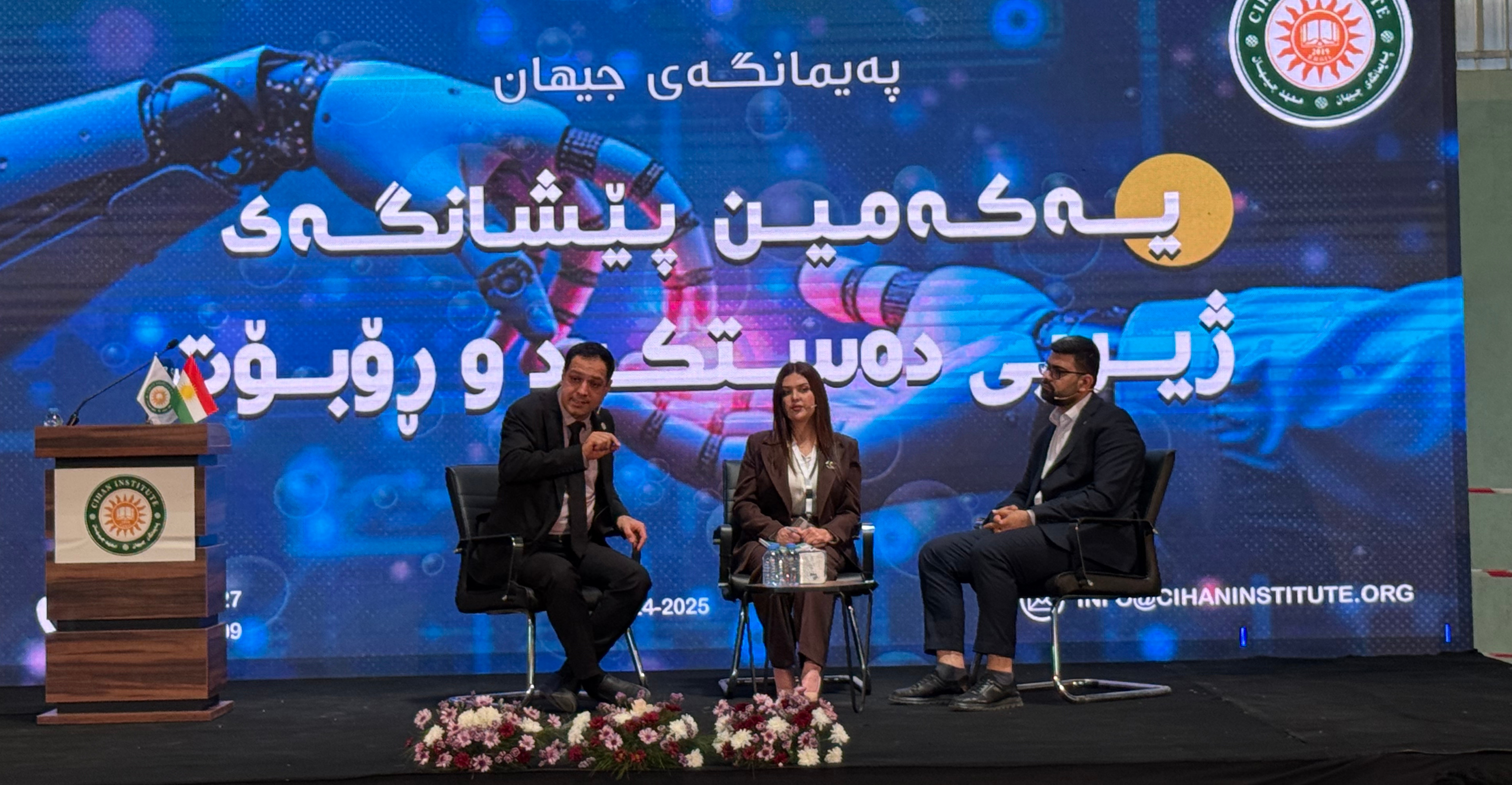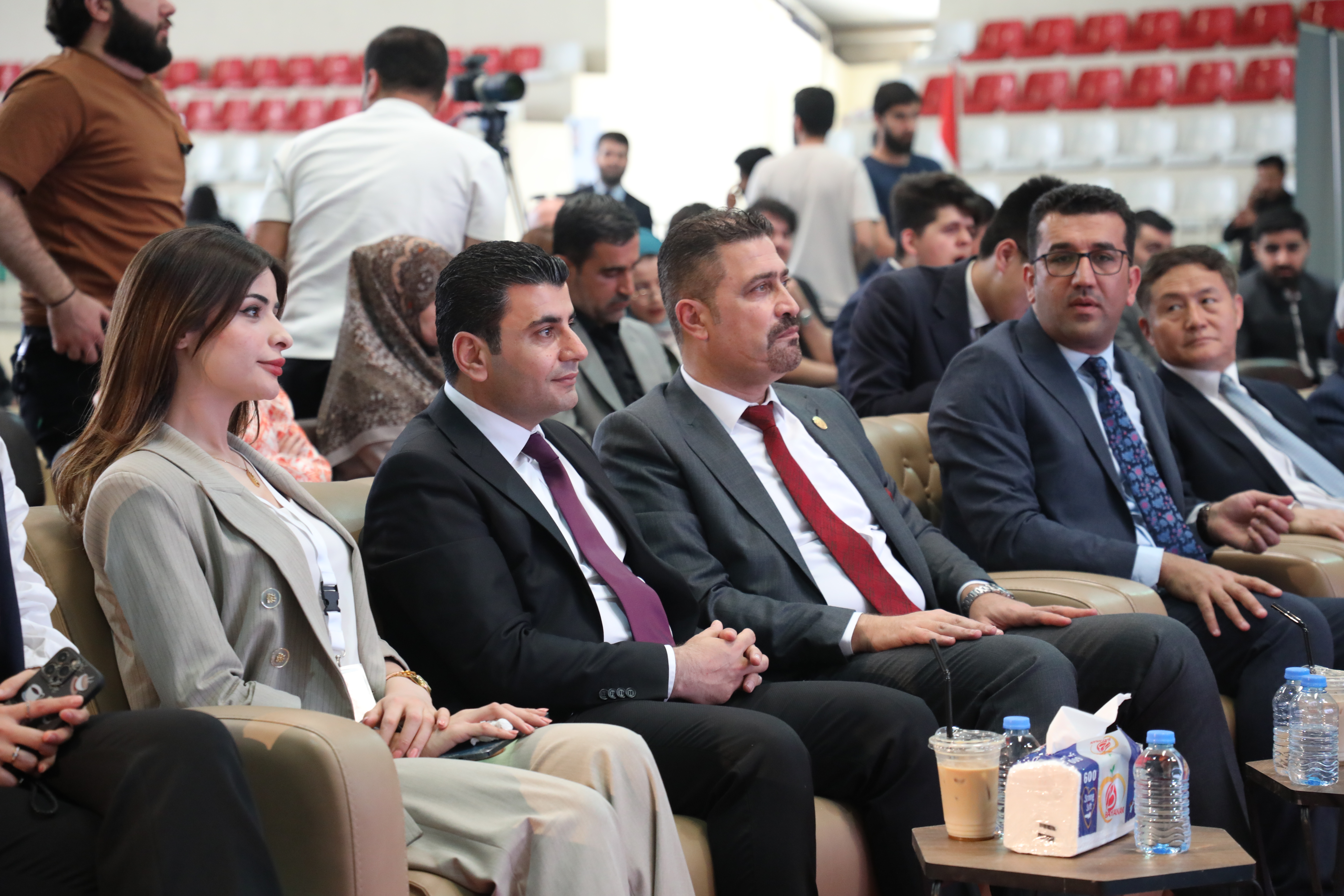
How LLMs Will Shape Modern Life – Reflections from the Panel at Cihan University
On April 27, 2025, I had the privilege of representing Salahaddin University-Erbil, specifically our Research Center and Data Analysis & Artificial Intelligence Unit, in a thought-provoking panel discussion at Cihan University. The topic at hand was both timely and transformative: “How Modern Life Will Be Affected by the Existence of Large Language Models (LLMs)”.
The event brought together academics, industry experts, and students to explore the societal, economic, and cultural shifts we are witnessing—and will continue to witness—as AI systems like LLMs become deeply embedded in our daily lives.

LLMs: From Novelty to Necessity
I shared with the audience how LLMs, once considered experimental, are now integrated into tools we use every day—whether in drafting reports, translating documents, coding, or assisting in research. For universities like ours, this means both an opportunity and a responsibility: to harness these technologies for innovation while ensuring ethical and educational safeguards.
The transformation has been remarkable. What began as research curiosities in AI labs have evolved into practical tools that are reshaping how we communicate, learn, and work. This evolution represents one of the most significant technological shifts of our time.
Key Areas of Impact
During the discussion, we examined several domains where LLMs are set to redefine the landscape. The educational sector stands at the forefront of this transformation, where LLMs enable personalized learning experiences that adapt to individual learning styles and pace. These technologies break down barriers for underserved communities by providing accessible resources and AI-powered tools for academic research and analysis. Furthermore, they offer unprecedented opportunities for language learning through real-time translation and interactive practice environments.
The workplace transformation represents another critical dimension of LLM integration. These systems streamline repetitive and administrative tasks while simultaneously creating new job categories and AI-related specializations. The emergence of human-AI collaboration enhances decision-making processes, though it necessitates continuous learning and skill evolution among the workforce.

Business and industry innovation accelerates through AI-driven customer support systems that provide intelligent assistance around the clock. LLMs enable rapid processing of complex market data, lower barriers to entry for new businesses, and facilitate automated generation of marketing and technical content. These capabilities fundamentally alter competitive landscapes and business models.
Social and cultural shifts emerge as LLMs break down language barriers, enabling global communication and fostering new forms of AI-assisted artistic creation. The democratization of knowledge makes expertise more accessible while highlighting the growing importance of digital literacy and AI understanding across all segments of society.
Our Role in the AI Era
As a representative of Salahaddin University-Erbil, I emphasized that higher education institutions in Kurdistan have a critical role to play. We must prepare our students not just to use LLMs, but to understand, evaluate, and improve them.
This responsibility encompasses comprehensive AI literacy programs that provide education on both capabilities and limitations of these systems. Our approach integrates interdisciplinary research that combines AI with traditional academic disciplines, fostering innovation across multiple fields. Strategic industry partnerships enable us to understand real-world applications while developing ethical frameworks that ensure responsible AI implementation.

For the Kurdistan Region specifically, LLMs present unique opportunities that align with our cultural and economic aspirations. These technologies offer powerful tools for Kurdish language processing and preservation, ensuring our linguistic heritage remains vibrant in the digital age. The potential for economic development through AI-driven regional business growth represents a significant opportunity for sustainable progress. Educational access improvements bring world-class educational resources to remote areas, while LLMs serve as cultural bridges that facilitate communication between Kurdish and global communities.
Challenges and Considerations
While the potential benefits are enormous, we also discussed the challenges that come with widespread LLM adoption. Technical challenges encompass ensuring accuracy and reliability of AI outputs, addressing inherent biases in AI systems, and protecting user data while maintaining confidentiality. These technical considerations require ongoing research and development to establish trustworthy AI systems.
Social implications present equally complex challenges, including managing job displacement and supporting affected workers through transition periods. The digital divide necessitates ensuring equitable access to AI technologies across all segments of society. Additionally, dependency risks highlight the importance of maintaining human skills and critical thinking capabilities alongside AI integration.
The Path Forward
The conversation at Cihan University reinforced several key principles for navigating the AI revolution. Education emerges as the foundational priority, requiring AI literacy development at all levels of society. Ethical leadership ensures that AI development serves human values and societal well-being. A collaborative approach emphasizes working together across institutions and borders to address shared challenges. Finally, continuous adaptation remains essential as we maintain flexibility in response to rapidly evolving technology.

Final Thoughts
The conversation at Cihan University was a reminder that the AI revolution is not a distant future—it is unfolding now. LLMs will continue to evolve, bringing immense benefits alongside real challenges. As educators, researchers, and policymakers, we must ensure these tools are used to enhance human potential, foster innovation, and protect societal values.
The dialogue we started on April 27 is just the beginning. The collaboration between Salahaddin University-Erbil and Cihan University represents the kind of academic partnership that will be essential as we navigate this transformative period.
I look forward to many more discussions on how we can shape this technology to serve our communities and future generations. The future of AI is not predetermined—it will be shaped by the choices we make today and the conversations we have tomorrow.
This panel discussion was organized through the collaboration between Salahaddin University-Erbil’s Research Center and Data Analysis & AI Unit with Cihan University, demonstrating the importance of inter-institutional cooperation in addressing the challenges and opportunities of the AI era.